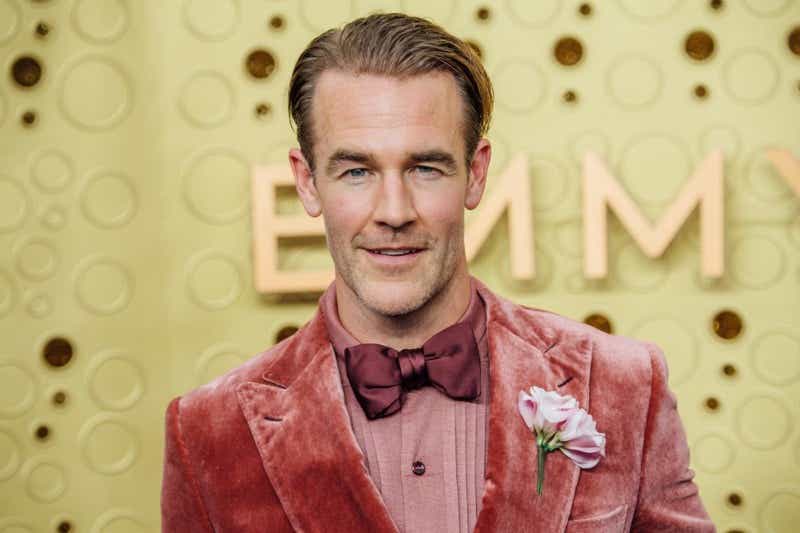The actor on teaming with Always and Walmart #EndPeriodPoverty.
James Van Der Beek is beloved for so many of his roles — as Dawson in Dawson’s Creek and as, erm, a fictional version of himself in the hysterical Don’t Trust The B. But now, the star has taken on a new role: The father of five is joining forces with Always and Walmart to #EndPeriodPoverty. In a new interview, the father of five told us why he was inspired to work on the campaign — and how we can all help the fight for equality.
Katie Couric: You’re teaming up with Always on its campaign to end period poverty. Why is this campaign so important to you?
James Van Der Beek: When you get a little bit of recognition, one of the superpowers you can wield is an ability to chip away at stigmas that don’t serve anybody anymore. I was super honored they came to me and view me as enough of an ally to stand at the forefront of this campaign. Period poverty is something I never thought about until I had kids. And then I heard about it and thought, “Of course that could be a problem.” One in five girls is missing school or extracurricular activities because of a lack of access to period products.
What I love about the campaign is there’s a video with these incredible girls from this martial arts academy and after school program in Miami, who talk about what it meant to get pad donations, because it’s not just about donations, it’s also about chipping away at the stigma. I will be posting a video on social media, and for every engagement, Always will donate one month’s worth of pads up to a half of a million. On top of that, they will donate a million pads, so total they will donate a million and a half pads. This is going to get people talking about it.
Growing up, puberty education was super awkward. As soon as we learned about it, all the boys tried to pretend it wasn’t happening. As soon as I became a father, I realized that type of behavior is really detrimental to our daughters, sons, and for us as a society. Periods are not only normal and natural, but they are also crucial to women’s health.
Why is it so important for men to join the conversation around period poverty and other aspects of women’s health?
This is not something that young girls should have to go through alone or in secret. They should be able to talk about it with their fathers and the other important men in their life and be able to ask for help to get the products that they need. Also, men sometimes control the budget, and one thing I’ve learned is that a lot of the pad budget falls into the same category as toilet paper and paper towels. The shame and stigma can have really devastating effects, so it’s important for the other half of the population to be able to talk about it.
How has this campaign opened your eyes to how inequality around period health affects young girls in some surprising ways?
Once you actually take the time to think about it, you realize the impact you can have on a young girl’s life. As a kid, going to drama class and participating in plays saved my life and helped my career. Some of these girls talk about how if they don’t have access to pads, they sometimes have to miss a week of school or extracurricular activities. If I had been in that position, it would’ve been devastating. I don’t know that I would be where I am today.
Your kids are still quite young, but what do you hope that they take away from your work on this campaign one day when they’re thinking about this?
The immediate hope is that they recognize me as somebody they can talk to about anything. Whenever it comes time to discuss topics like these, the nerves have kicked in because I want to approach it in a way that lets them feel they can talk to me and that it won’t be weird. One doctor told me it’s important to call everything by its actual clinical name and not make up cute nicknames or monikers for things because that signals this is something that can’t be discussed openly. I hope my daughters see me as an ally and somebody who is completely fine with the changes going on in their bodies.
What do you hope other people who, like you, maybe didn’t know a lot about this subject before, take away from this campaign?
I hope that people just take the time to think and recognize how big and pervasive a problem it is, and how important it is that we address it. This is something that needs to come to the forefront. We have to look out for this generation.
Unrelated to the campaign — what’s next for you?
More writing, creating, and show-running is what you’ll see from me next! I am writing, creating, and developing a show that I actually can’t talk about yet.
This interview has been edited and condensed.
This originally appeared on Medium.com












